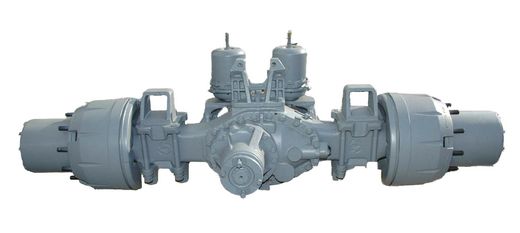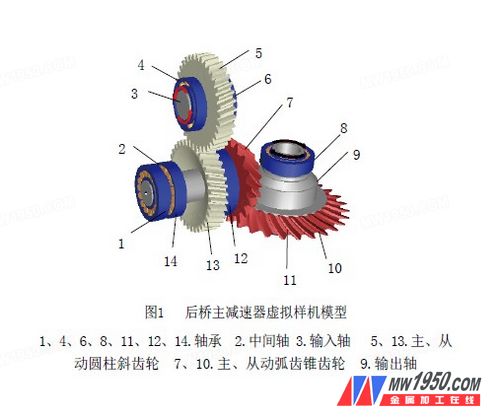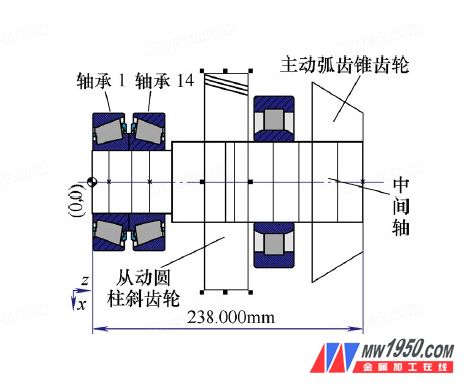
The main reducer is a critical component in the truck drive axle system, significantly influencing the vehicle’s overall performance and reliability. Among its key parts are tapered roller bearings, which play a vital role in the final drive mechanism. The precision, vibration characteristics, and long-term reliability of these bearings directly affect the efficiency and lifespan of the entire drive system. Due to high-speed operation, heavy loads, and complex motion conditions, the main reducer bearings often experience issues such as roller slippage, misalignment, and excessive friction with the raceway and inner ring. These problems can lead to overheating, accelerated wear, and ultimately, premature failure. Bearing fatigue is one of the most common causes of damage in truck drive axles, making it essential to thoroughly understand and optimize the static properties and selection of tapered roller bearings.
Virtual Prototype Modeling
1. Introduction to RomaxDesigner Software
RomaxDesigner is a powerful simulation tool used for analyzing gear transmission systems. It integrates bearing behavior within the system, along with interactions between shafts and gears. This comprehensive approach allows researchers to study the entire transmission system, enabling detailed analysis of potential bearing failures in the main reducer of a drive axle.
2. Simulation Model Establishment
The rear axle final drive of a heavy-duty truck uses a combination of spiral bevel gears and cylindrical helical gears to transfer power between shafts. The input shaft of the active cylindrical helical gear transmits a maximum torque of 7679 N·m at 180 rpm, operating continuously for 8 hours. Based on the structure of the transmission system, a simplified virtual prototype model and power flow were created using RomaxDesigner (see Figure 1). In this model, an input torque was applied to the input shaft where the active cylindrical bevel gear is located, while two power outputs were defined on the output shaft that connects to the driven spiral bevel gear.

Figure 1: Virtual prototype model of rear axle final reducer
This study focuses on two tapered roller bearings supporting the main drive bevel gear—bearing 1 and bearing 14 (see Figure 1), model number 30311E. The RomaxDesigner planar model is shown in Figure 2. A specific load case was defined in RomaxDesigner to simulate the operation of the main reducer's virtual prototype model.

Figure 2: Intermediate axis RomaxDesigner plane model
For more detailed insights and data from the MW1950 project, please download the full report attached.
Elevator Door Modernization, Elevator Door System Modernization, Elevator Complete Door Modernization, Elevator Complete Door System Modernization
Neglecting elevator door equipment jeopardizes riding public safety and increases owner liability. Modernizing elevator door equipment is important in making an older elevator system more reliable, safe, code compliant, efficient, and provides a more marketable appearance. This is particularly true with door operators. Door operators undergo tremendous wear and tear in daily operation. Each time the elevator stops, the door operators are activated at least two times, more frequently if occupants manually hold the doors open. Some elevator maintenance companies report that nearly 75 percent of their service calls are for malfunctioning door operators
Elevator Door Modernization, Elevator Door System Modernization, Elevator Complete Door Modernization, Elevator Complete Door System Modernization
CEP Elevator Products ( China ) Co., Ltd. , https://www.china-elevators.com
